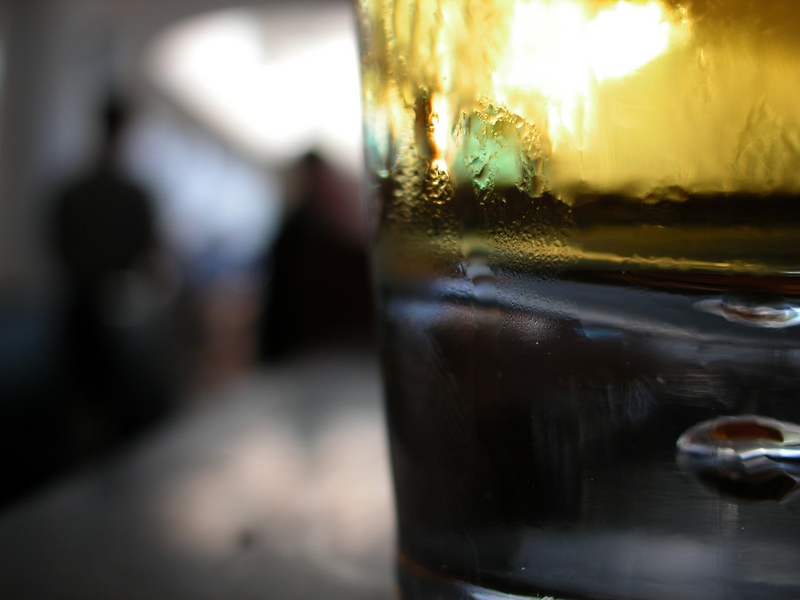
TUESDAY, March 10, 2015 (HealthDay News) — Caricatures of the not-too-swift, drunken fratboy may have some basis in science, with a new study finding that the lower a young man’s IQ, the more likely he is to get drunk.
Researchers in Sweden found that as men’s IQ scores dropped, their risk of both heavy drinking and binge drinking rose.
“Intelligence, along with many other factors, might be a part of the complex picture that influences alcohol consumption,” said lead author Sara Sjolund, a doctoral student at the Karolinska Institute in Stockholm.
Previous studies have been mixed regarding how IQ might affect drinking habits, with some finding a link between high IQ and heavier drinking, the study authors pointed out in background information in their report.
But according to the new study’s results, a young adult male’s risk of heavy drinking increases 20 percent for every rung down an IQ ladder established by the researchers. Likewise, their risk of binge drinking increases by 9 percent for every drop down the IQ scale.
The findings may not pertain to females, however. “We must be very careful in making any attempt to generalize our results to women,” Sjolund said, “since their level of consumption and patterns of drinking likely differ in comparison with men.”
Also, it’s important to note that the study was only designed to find an association between IQ and alcohol consumption. It cannot prove a cause-and-effect relationship.
The new study involved nearly 50,000 Swedish men, aged 18 to 21, who were enlisted by the government for military service between 1969 and 1971. The researchers looked at IQ scores and data on drinking habits from tests the men took during their induction into the military.
Sjolund’s team found a clear association between IQ and alcohol use, even after adjusting the results to take into account each man’s social/economic status, any psychiatric and emotional problems, and the fathers’ drinking patterns.
Sjolund said a person with lower IQ might wind up making lifestyle choices that lead them to heavier drinking, although she added that intelligence is probably just one of many factors that determine each person’s alcohol use.
“It may be that a higher IQ results in healthier lifestyle choices,” she said, but it also might be that childhood conditions such as poverty might influence both IQ and health.
The brains of these young men were still developing at the time they entered the military, noted George Koob, director of the U.S. National Institute on Alcohol Abuse and Alcoholism.
“The brain doesn’t fully develop until age 25,” Koob said, adding that studies have found that drinking can affect the development of the frontal cortex. This part of the brain has been linked to IQ and is tasked with planning, organization and impulse control.
“You can imagine that anything that mucks up the development of the frontal cortex can have some tremendous effects,” Koob said. “It’s significant that young people probably don’t fully understand the implications of excessive drinking.”
That begs the question — did alcohol cause lower IQs in these young men, or did their IQ drive their drinking?
The Swedish researchers contend that their findings settle this “chicken-or-egg” question over IQ and drinking.
Daniel Falkstedt, an assistant professor in the department of public health sciences at the Karolinska Institute, said in a journal news release: “In this study of a general population, intelligence probably comes before the behavior, in this case, alcohol consumption and a pattern of drinking in late adolescence.”
But Koob said the opposite argument could be made.
“Anyone who drinks heavily at 12 years old is three to four times more likely to have an alcohol-use disorder in later life,” Koob said. “Did they come into it with a lower IQ and alcohol made it worse, or did alcohol induce a lower IQ due to developmental effects?”
In either case, the findings suggest that programs to discourage teen drinking are important, Sjolund said.
“Alcohol is harmful in young adulthood, and policy measures to reduce drinking are important — not the least for disadvantaged groups like those with lower IQ,” she added.
The study was published in the March online edition of the journal Alcoholism: Clinical & Experimental Research.
More information
For more on underage drinking, visit the U.S. National Institute on Alcohol Abuse and Alcoholism.
Copyright © 2026 HealthDay. All rights reserved.

